Leigh Donlan reports from the Cowell Theater at San Francisco’s Fort Mason Center:
An alluring and provocative program from Dance Theatre of San Francisco graced the Cowell Theater at Fort Mason Center last weekend, featuring three world premières from Amy Seiwert and DTSF’s newly appointed (and first ever) Artistic Director, Dexandro ‘D’ Montalvo, and a revival by Robert Moses.
Navigating Coexistence, Montalvo’s first première, was sensitively moving. Two couples dressed loosely in all-white costumes – by company dancer/ designer Christopher Dunn – explored each other’s boundaries through the language of touch. Their chemistry was palpable, their frustration believable. The score, composed by Shigeru Umebayashi and Caleb Burhans, was a mixture of sounds with strings that wailed in yearning with the dancers’ lifts and falls. There was always something just out of reach, something impossible to attain, and the original couple breaks away from each other in the end, only to start the whole excruciating process over with new partners. The lifts in this piece were particularly remarkable, with the women’s legs spread wide open over their male partner’s heads, hinting at obscenity yet whispering of truth. And all four dancers – Christopher Dunn, Kelsey McFalls, Dalmacio Payomo and Jessica Wagner – gave captivating performances, that felt like honest personal testimony.
Robert Moses’ Toward September further sustained the intrigue, with powerful movements punctuated by softness. The DTSF company of nine moved with desperate urgency to the Moses and Aleta Hayes score of industrial sounds and voices; the audience’s eyes never rested, the dancers never rested, the space never rested. Movements were sensual, violently so – a hostile tango, bodies climbing onto and toppling each other, conveying a sense of bondage. At one point the entire corps moved to the sounds of cash registers ringing and beer cans popping. The piece ends with the dancers huddled together, executing faux sincerities – kisses blown into emptiness, antagonistic handshakes, belligerent embraces. Again, this was a piece where human desires were never truly satisfied and I started wondering if life really has to be so… hard.
So Amy Seiwert’s première, Scene 6, was a most welcome reprieve from all the previous brutal truths. A simple pas de deux between two dancers – Sharon Kung and Cooper Neely – evoked a loving relationship in which the two dancers actually connected, but only to a certain degree. Moments of departure, isolation and solitude arose, but this piece restored in us a sense of hope. And the dancer’s gestures were tender and poetic, Kung’s hands often resembling birds in flight. The piece finishes with a beautiful image of Kung reaching up, beckoning toward the light, as Neely supports her on his shoulders.
The evening ended with Montalvo’s second première – and my anxiety reemerged. The company slithered about the stage, pulsing to another industrial composition by Perc, frequently touching their throats as if something needed to be said but couldn’t be. Mia Chong was phenomenal, moving with brute force one moment and feathery softness the next. The corps stomped, crawled and soldiered, their heads swiveling rhythmically in response to the sounds of shotguns and other clamorings. The lifts and formations were always risky and we were gripped by a fear that someone was going to unintentionally smack the floor at any given time. It felt like hunting season, dark and twisted – and it left me longing for a peace that never came.
DTSF – only in its third season – is showing staying power, with insightful choices in artistic direction and superb choreographers. The company dancers are dynamic and leave lasting impressions, however disturbing the subject matter may be.


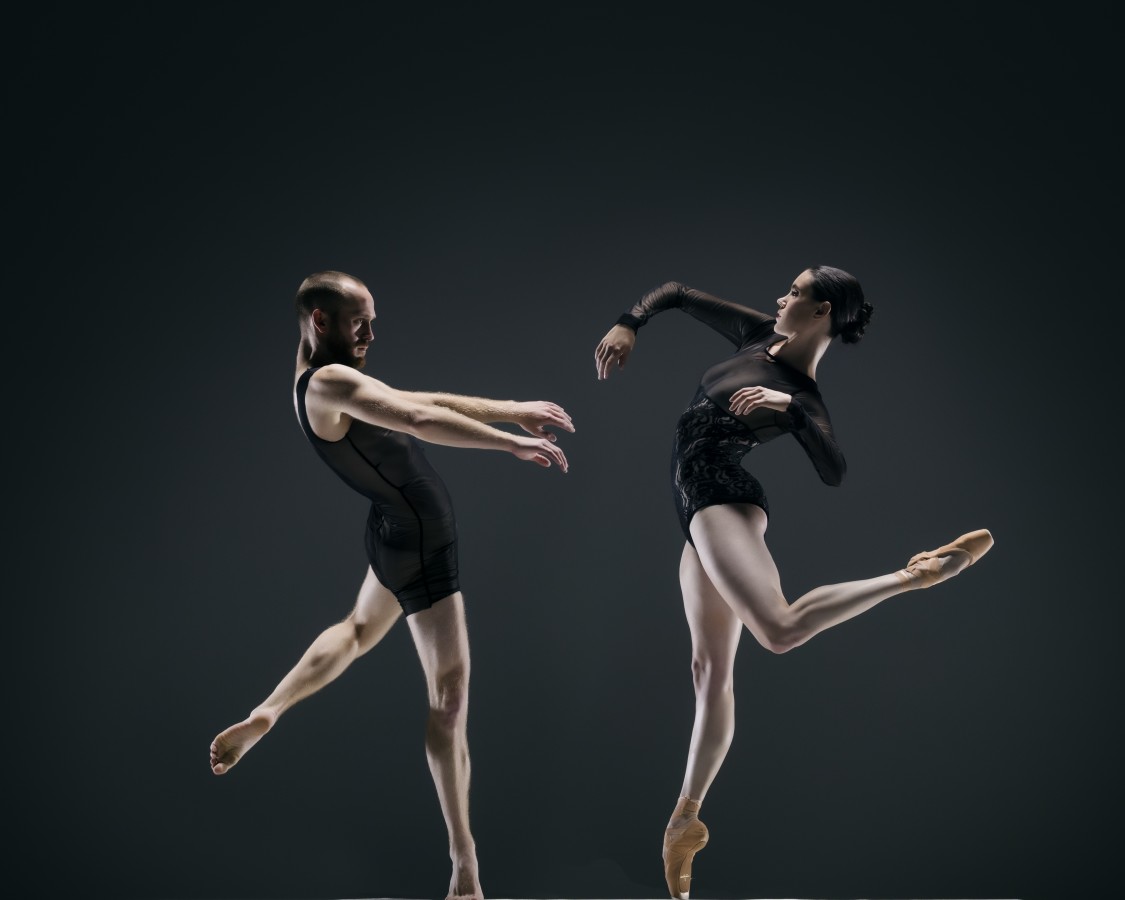
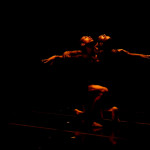

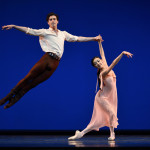
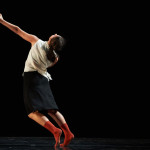
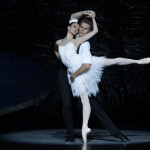
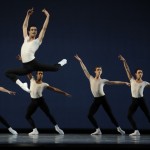
Riveting!